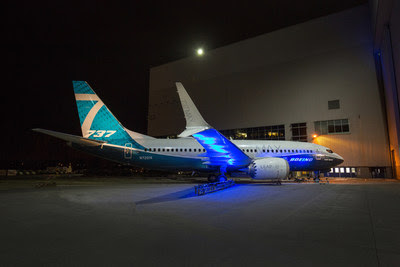Boeing’s second-quarter earnings will include a $4.9 billion after-tax charge to cover some actual and estimated future expenses linked to the 737 MAX grounding, while a reduced production rate is driving up 737 costs and lowering margins, the company said July 18.
The after-tax charge reflects “an estimate of potential concessions and other considerations to customers for disruptions related to the 737 MAX grounding and associated delivery delays,” the Chicago-based company said. It will reduce Boeing’s Q2 revenue and pre-tax earnings by $5.6 billion. It also will leave the company with a quarterly net loss.
“While the entire estimated amount will be recognized as a charge in the second quarter, the company expects any potential concessions or other considerations to be provided over a number of years and take various forms of economic value,” the company added.
Boeing is recording the charge assuming that regulatory approval clearing the MAX fleet to return to revenue service “in the US and other jurisdictions” will begin “early in the fourth quarter,” the company said. “This assumption reflects the company’s best estimate at this time, but actual timing of return to service could differ from this estimate,” it added.
Boeing is working on flight-control software modifications that regulators must approve before the MAX returns. Boeing’s latest estimate has it presenting a package to FAA for approval sometime in September. FAA is expected to take at least several weeks to review the package, and other regulators also plan to conduct reviews.
Boeing’s Q2 charges also assume that the 737 production rate will rise from its current 42/month rate to 57/month in 2020, “and that airplanes produced during the grounding and included within inventory will be delivered over several quarters following return to service”…



